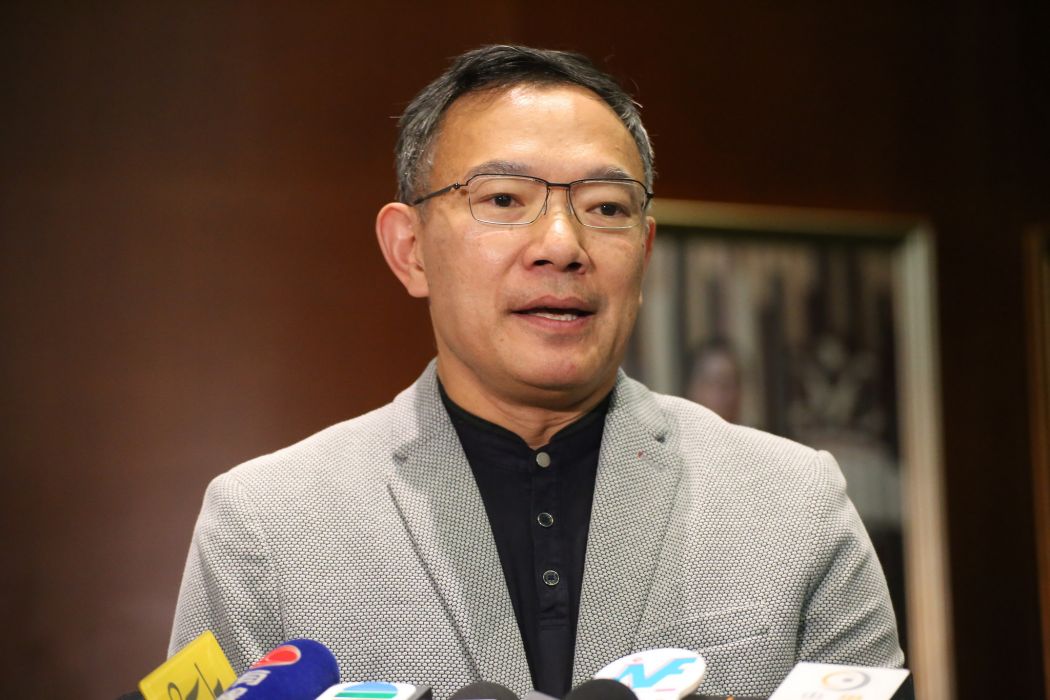Pro-democracy lawmaker Alvin Yeung has said the democrats do not have many usable tactics left to prevent looming changes to the legislature’s rules.
The changes, mostly proposed by the pro-Beijing camp to curb filibustering, will be debated as early as Wednesday. The Legislative Council President decided to combine proposals submitted by both sides in order to shorten debate and complete the process before the Christmas holidays. The pro-democracy camp does not have enough votes to block the changes after six democratically-elected lawmakers were disqualified by a court.
“Many pro-democracy camp lawmakers have tried to find ways to make the debate less smooth,” Yeung said on a RTHK programme on Wednesday. “We must admit that we have few usable tactics, especially when we can see that the president did not follow the usual practice in some important issues.”

Yeung said that, in the past, lawmakers would be allowed 15 minutes to speak on each amendment, but the upcoming debate only allows 15 minutes for all 54 amendments.
But pro-Beijing lawmaker Paul Tse, also the chair of the Committee on Rules of Procedure, said many of the amendments raised by the pro-democracy camp were not controversial at all – for instance, adding sign language as official language and providing additional resources. He questioned whether they had been raised in order to stall the meeting.
Rights of lawmakers under ‘One Country, Two Systems’
The pro-democracy camp warned at a news conference on Wednesday that, after the rules are changed, Hong Kong’s controversial national security law could be passed sooner. “This threat is imminent,” said Charles Mok, convener of the camp.
He accused the government of working with the LegCo president, as the government had decided not to submit any bills before the rules are changed. “If we compare it to a football game, it is as if the game is not even set with a time limit of 90 minutes – it can go on as long as necessary until the pro-establishment team wins.”

The camp said they cannot reveal their tactics, but Mok said they will avoid physical confrontations with security guards.
Veteran lawmaker James To cited former LegCo president Jasper Tsang as saying: “It is the right of lawmakers to delay or block government bills under the ‘One Country, Two Systems’.”
“Changing the rules is equal to cancelling ‘One Country, Two Systems’,” To said. “You are forcing the public to come out to protest and take strong actions.”
Education sector lawmaker Ip Kin-yuen also said some of the proposed changes were not only meant to stop filibustering, but were also designed to strip their rights to form select committees to investigate issues: “This is very serious – the whole LegCo will be meaningless.”
Forcibly changing the rules of order clear the way for draconian National Security laws in #HongKong! Rally this Thursday evening at LegCo Plaza. pic.twitter.com/3UIX6bt8Ow
— Ray Chan (@ray_slowbeat) December 6, 2017
The camp will hold a rally at 7pm on Thursday night outside the LegCo.
The happiest person
A controversial amendment has been raised by the pro-Beijing camp to reduce the quorum needed for the “Committee of the whole council” stage of proceedings from 35 to 20. The camp’s convener Martin Liao suggested that the stage – held in the main chamber – be considered a committee like other parts of the LegCo, so that the quorum requirement need not be applied.

Yeung said that, since the pro-democracy camp has to have one person in the chamber to call for a headcount, the 40-member pro-Beijing camp would only need 19 people to remain: “It must be a big relief for the pro-Beijing camp. If the rules are changed, the pro-Beijing camp must be the happiest one.”
But Paul Tse said the LegCo has been spending a lot of time dealing with filibustering to prevent premature adjournments owing to a lack of quorum: “I do not even wish to speak in many debates anymore, so as not to create opportunities for premature adjournment.”
He said it was “infuriating” that his camp members had to stay in the chamber to “listen to nonsense.” If the rules are changed, he said: “the public must be the happiest ones.”
Public opinion
A survey of the Hong Kong Institute of Asia-Pacific Studies of the Chinese University of Hong Kong issued on Tuesday found that around half of respondents agreed that the rules should be changed to reduce filibustering, but 30 per cent said they did not agree.
Lawmaker Ray Chan said the rate of support for rule changes did not shift much when compared to a survey in 2014, but society is more split, as more people said they did not agree with the rules change.
